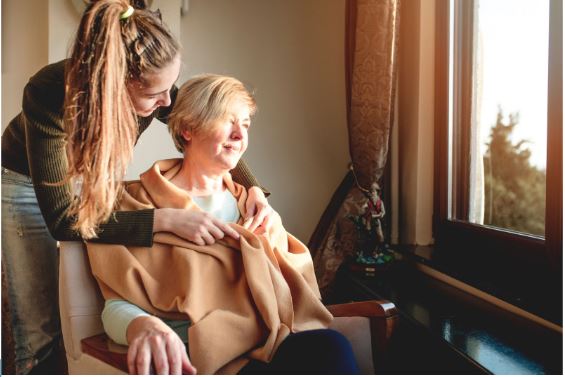In April 2025, CCCC was granted intervenor status in a landmark case that asks: Can a religious healthcare institution be compelled to perform euthanasia?
Factual Context
The case arises in the context of a young woman with incurable cancer who was admitted to St. Paul’s Hospital, operated by Providence Health Care Society, a Catholic organization. Providence Health Care Society operates in accordance with Catholic convictions that human life is sacred, that service to the sick is a fundamental, essential expression of faith and is founded on a deep respect for the dignity of every human person.
As a result, Providence does not provide MAID on its premises but arranges to transfer patients to a facility that performs MAID.
The patient in this case requested MAID, was assessed, approved, and agreed to be subsequently transferred to a nearby site that performs MAID. Before she was sedated for the transfer, the patient had an opportunity to privately visit with and say goodbye to friends and family. The patient was sedated just before her transfer and was asleep when she arrived at the MAID facility where she was euthanized.
The Claim
The patient’s family, Dying with Dignity, a euthanasia advocacy organization, and a physician together argue that permitting MAID-free healthcare facilities violates section 2 and section 7 of the Charter because it interferes with access to MAID.
Section 2 of the Charter protects freedom of conscience and religion, among others, and requires the state to be neutral toward religion. Section 7 of the Charter protects the right to life, liberty and security of the person.
Charter rights and freedoms can be limited when the limits are prescribed by law and can be “demonstrably justified.” That has been applied in law through a proportionality test which asks whether the law limiting Charter rights is sufficiently important, is rationally connected to the goal, and is proportionate in its effect.
The Defendants include the BC Minister of Health, Vancouver Coastal Health Authority and Providence Health Care Society, a Catholic health facility and non-profit corporation. For its part, the Minister of Health explains that the province supports reasonable access to MAID but must also protect the rights of medical professionals and faith-based organizations with conscientious objections to MAID.

Life-Affirming Care is Necessary
We have written elsewhere that life-affirming care is a necessary check on rapid MAID expansion and which is a collective expression of conscience about the value, worth, and dignity of all human life that must be protected under the Charter. As we explain
“Though often forgotten or conflated with religion, freedom of conscience is an independent right with independent content. It is found in section 2(a) of the Canadian Charter of Rights and Freedoms. For our Supreme Court, “it is easy to see the relationship between respect for individual conscience and the valuation of human dignity” and its central role in a free and democratic society.
Freedom of association is found in section 2(d) of the Charter. It has largely been applied by courts to union situations, but its fundamental purpose is much broader: It is meant to protect individuals from “state-enforced isolation in the pursuit of his or her ends,” to “empower vulnerable groups” and make possible a “more equal society.” Association is particularly important for the exercise of other freedoms, including conscience.”
CCCC Intervention – Conscience and Charity
CCCC sought to intervene to raise two crucial arguments:
- The need for collective conscience protections—not just for individuals, but for entire organizations.
- The importance of respecting charity law, which obliges charitable institutions to act in line with their foundational purposes.
Though the plaintiffs argued that CCCC’s perspective overlapped and duplicated those of other proposed interveners, Chief Justice Skolrood found that CCCC “represents a number of Christian charities who operate in the healthcare, social and community services sphere” and affirmed that CCCC’s perspective was different than those offered by other intervener applicants.

Conscience
CCCC will urge the court to find that an organization can have Charter-protected conscientious beliefs. The purpose of freedom of conscience is to protect basic beliefs about human worth and dignity and strongly held moral ideas of right and wrong. It must therefore, protect convictions about human life and death, and the morality of killing another human being.
It would be a very strange result to recognize in non-profit and charity law the existence and purpose of an entity to promote health from a particular conviction and then deny that very same entity freedom of conscience to do so.
The Charter should not provide a lower degree of protection for non-profit and charitable organizations than applicable corporate law statutes and common law principles. Institutional conscience furthers underlying aims of the Charter such as promoting pluralism, institutional diversity and state neutrality.
Charity
The character, nature, and duties of non-profit organizations, both under statute and the common law, show immediate and significant parallels to conscience. Constitutions and by-laws set out the organization’s purpose(s), restrictions on activities, its identity, and core convictions. Directors must act honestly, in good faith, with diligence and care, all in the best interests of the organization. Directors must ensure the organization conducts only those activities that are consistent with its constitution – acting in accordance with its identity, character, and purpose; in other words, its conscience.
Freedom of conscience is therefore a necessary correlate of the corporate and charity law constraints that require non-profit corporations to act within established boundaries.
Next Steps
CCCC will develop these charity law and conscience arguments in written form and file them with the court. The deadline for these submissions is to be determined, but the trial is scheduled for January 2026, with the parties’ written submissions to follow. The outcome of this case could radically reshape the landscape for faith-based healthcare in Canada, and CCCC will be present to advocate for protection and preservation of these invaluable organizations.
Want to Know More About CCCC Interventions?
We’ve written a four-part series in our CCCC Bulletins – see our March, April, May and June 2025 editions. You can also check our Legal Cases page.


